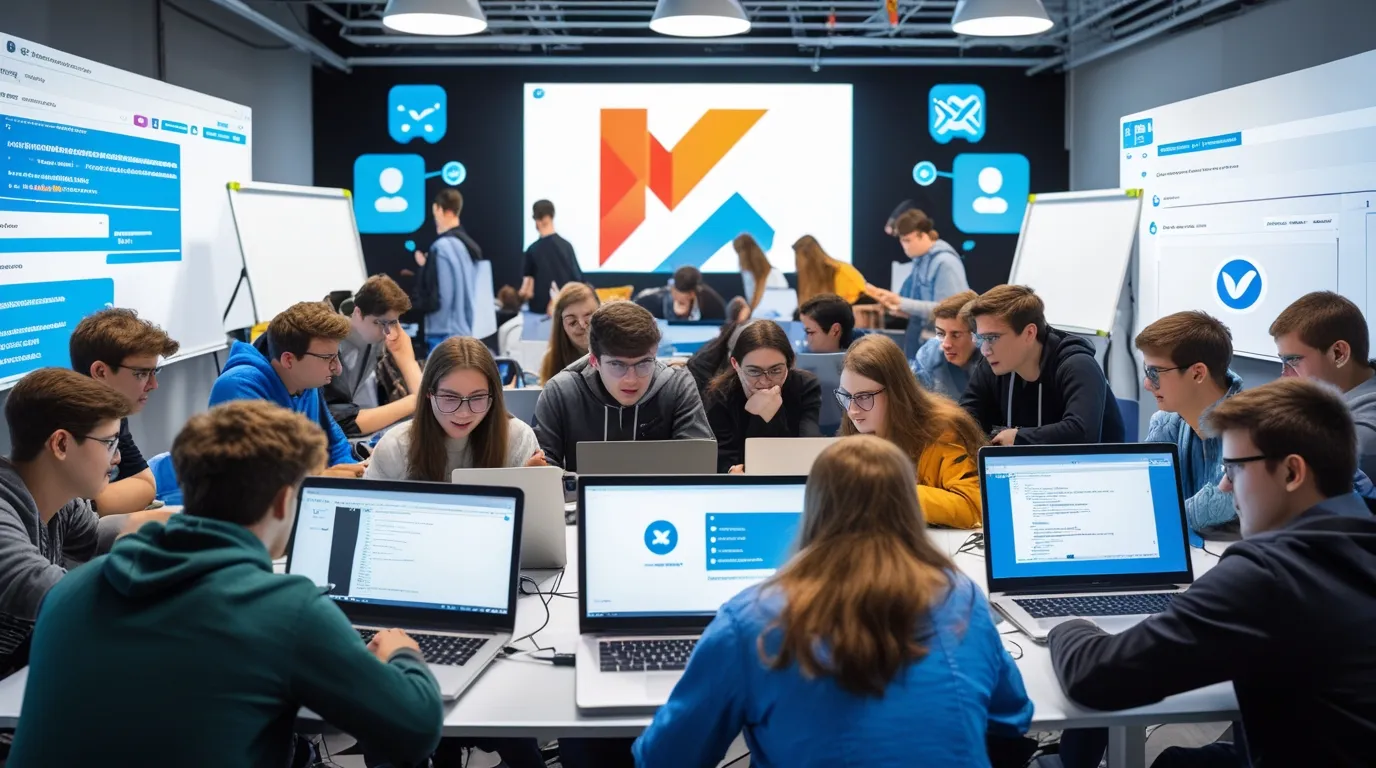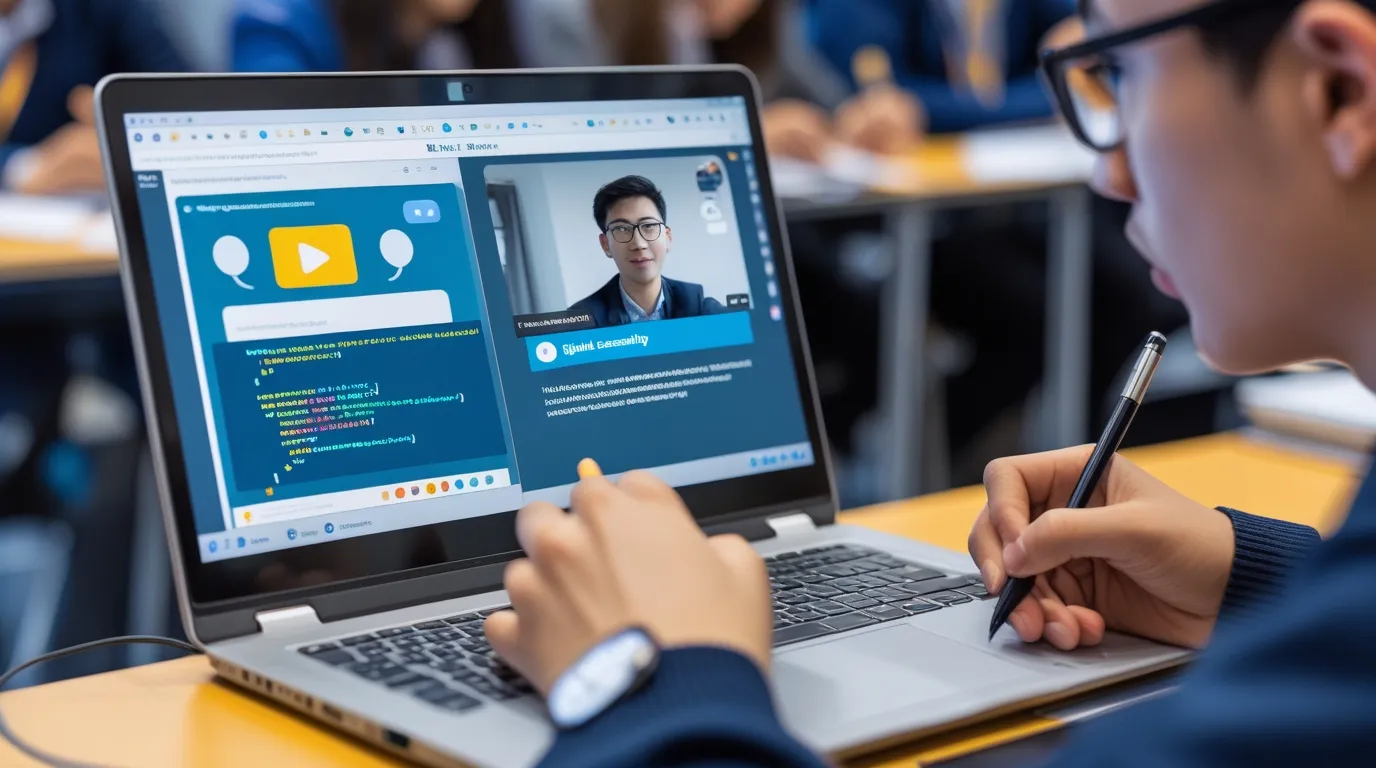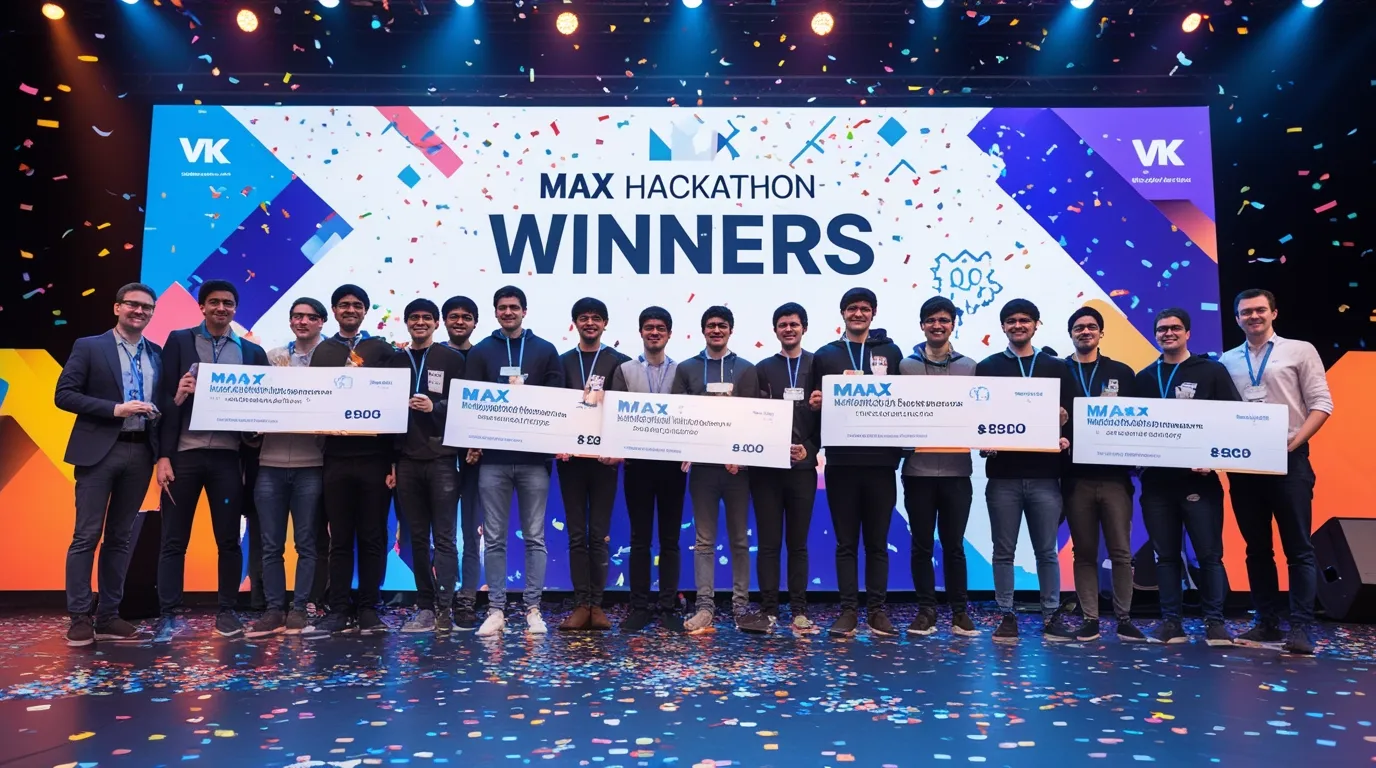Hello, We’re Looking for Talent! Max Invites Students to Build Chatbots and Mini Apps
Students across Russia are taking on real-world challenges in digital inclusion, cybersecurity, ecology, and process management — turning classroom knowledge into practical innovation while earning both recognition and rewards.

Coding with Purpose
With a prize pool of about $33,000 and a promise that the winning ideas could be implemented in real-world systems, the new Max Hackathon goes far beyond a typical student competition — it’s a step toward shaping Russia’s digital future.
Teams of two to three full-time students are invited to participate, tackling social impact themes like digital accessibility, environmental sustainability, and workflow management. These are not theoretical exercises; they are urgent, practical issues that call for creative technical solutions.

The hackathon follows a structured path — an online qualifying round, a learning program, and an in-person final in Moscow on November 30. Out of hundreds of teams, 54 will advance to the finals, selected by experts from Max and VK Education. The nine strongest teams will pitch their chatbots and mini apps directly to the jury. Judges will evaluate each project for its relevance, functionality, public value, and scalability, depending on the track chosen.
A “Digital Incubator” for the Future
This hackathon could become more than a one-time event — it has the potential to evolve into an annual ecosystem for talent and ideas. If VK and Max provide ongoing support for winners, we could soon see student-built digital tools implemented in universities, cultural institutions, and even healthcare systems.
Such initiatives could form a sustainable “ecosystem within an ecosystem,” nurturing not only new software products but entire teams of young developers loyal to national digital platforms. In the long run, Max could transform from a “domestic alternative” to a fully established player in the messaging and app ecosystem — built around homegrown innovation. Student hackathons, in turn, may become a tool for “digital patriotism,” teaching young engineers to think beyond imitation and design solutions rooted in local needs and technologies.
From Campus to Code Mission
For VK — one of Russia’s leading IT companies — hackathons are a proven way to scout for emerging talent. Projects like the Russian AI Cup and the “Leaders of Digital Transformation” contest attracted over 9,000 participants in 2024, generating software tools for urban management, businesses, and regional governments.

Russian university students have repeatedly demonstrated their technical excellence. Teams from the National University of Science and Technology MISiS have won multiple Tender Hack events focused on creating virtual assistants. MISiS also maintains a dedicated hackathon club of over 500 students, guided by Dr. Sergey Solodov, director of the Institute of Computer Science. As Rector Alevtina Chernikkova explains, “In 2024 alone, our students earned nearly 100 victories in national and international programming competitions, with combined prize winnings of about $185,200.”
The movement is part of a larger trend. Thousands of students have benefited from programs such as Student Startup, run by the Innovation Promotion Fund under the national “Technology” project. Between 2022 and 2024, 4,500 projects received funding; another 2,500 are expected in 2025. Each winning student receives a grant of about $11,000 to develop their business idea.
However, the Max hackathon stands out for its targeted goal — to build a living ecosystem of services directly within the Max platform.

A National Tech Mission
Hackathon participants aren’t just competing for cash — they’re joining a mission to build the next generation of Russian digital tools. Universities gain a bridge to the real tech sector; society gains new digital services for education, culture, and healthcare, tailored to local realities.
Most importantly, this initiative fits into a national strategy for digital sovereignty. As the program’s organizers describe it, the “code of national independence” is being written collaboratively — by talented young developers, supported by VK’s ecosystem, and aligned with real social needs.










































